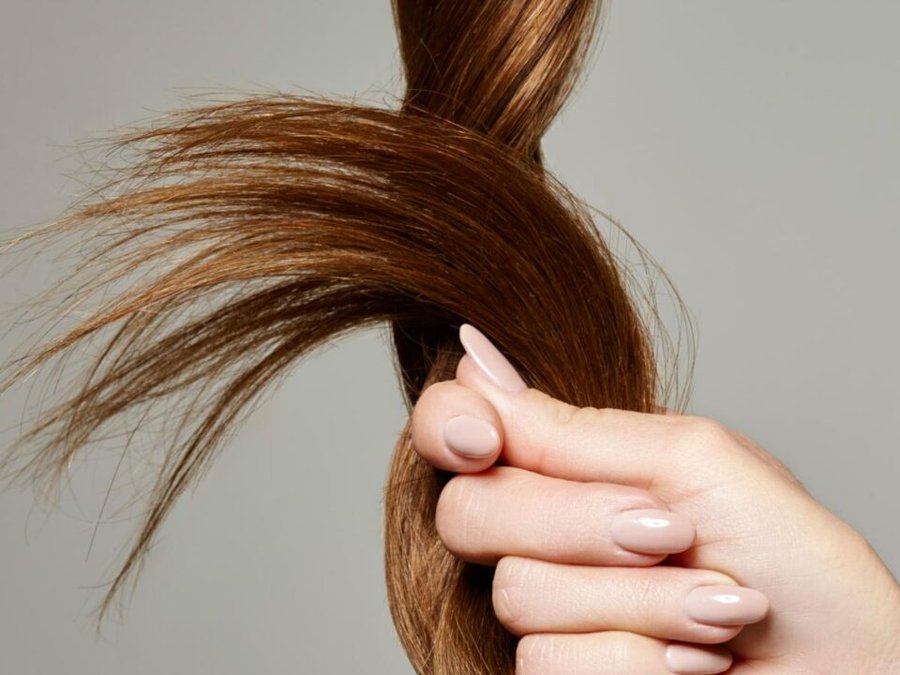If you live in an area where winter weather happens, you’re probably aware of the toll it takes on your hair. Winter cold is hard on all hair types and thicknesses. Hair, like skin, requires cold protection to be supple and healthy. Protect your hair against frigid air, high winds, static electricity, and even inside heat. You want to have beautiful locks to flaunt when spring finally arrives!
Image credits: Pexels
- Healthy hair needs a healthy diet.
A nutritious diet can help your hair stay strong and lustrous. What you eat can also help you keep your hair from falling out. If you aren’t receiving enough nutrients from your diet, you may notice a difference in your hair.
Essential fatty acids, particularly omega-3s, are important for the health of your skin, hair, and nails.
Vitamins B6, B12, and folic acid are also essential for healthy hair. They are frequently in short supply for vegetarians and vegans.
Bananas, potatoes (both white and sweet), and spinach are all high in B6. Meat, poultry, fish, and dairy products are excellent sources of B12.
Also check out: Top 6 things to follow for healthy hair!
Folic acid is found in a variety of fresh fruits and vegetables, including citrus fruits and tomatoes. It can also be found in whole-grain and fortified grain products, beans, and lentils.
Protein is also important for hair health, although many individuals don’t receive enough of it. Good sources include lean meats like fish and poultry, eggs, and soy products. Consume one serving every day.
- Get regular trims.
Trimming your hair every four to eight weeks is a wonderful strategy to keep your hair healthy and looking beautiful. Remove a half-inch from the bottom to lessen the likelihood of dry, broken ends. Winter is frequently the most difficult season for the ends of your hair. Friction against hats, coat collars, and other items add to the tension. Split ends are an unavoidable adverse consequence. If you get frequent haircuts, those split ends won’t stand a chance — your hair will stay healthy and beautiful.
- Deep Conditioning Hair Mask.
Weekly hair mask treatments are a good preventative practice to preserve the general health of your hair. A hair mask including nourishing and hydrating components such as egg and honey nourishes the hair. These substances hydrate dry hair, promote hair development, give shine, and soften the hair. Water-soluble peptides in egg yolk condition and encourage hair development. Honey is high in amino acids and vitamins, and it helps to condition the hair. For nightly moisture, follow with hair oil or serum.
Also check out: Ingredients to look into for perfect hair!
- Fighting winter static electricity.
When moisture cannot reach your hair strands, static electricity forms. It’s because of the considerably drier air in winter, as well as the build-up of things like silicone and other hair treatments, which can alter the makeup of your hair.
When you want to remove your winter hat, if the air is excessively dry (as it is in the colder months), static will remain on your hair strands and molecular charges will repel your strands apart from one other.
The easiest technique to deal with static electricity is to keep your hair hydrated. Not only is hydrated hair thicker in weight, which keeps the strands more bound together, but adding moisture affects the makeup of the hair, preventing static electricity from repelling your hair strands apart from each other.
- Avoid frequent hair washes.
When it comes to washing your hair, the frequency should be determined by how much oil your scalp generates.
Your scalp is a skin-like extension of your body. It also gets dry throughout the winter. It will be protected if you keep it hydrated with an oil or conditioner. To keep the scalp clean, oily hair may need to be cleaned every day, but chemically-treated hair can be washed less regularly.
Doctors recommend using a conditioner tailored to your hair type after washing your hair. The conditioner will help bind the hair fibre together, making it stronger, and it will also help resist static electricity in the winter. Products like moisturising shampoo, leave-in conditioner, and hot oil therapy can also help combat the static electricity caused by headwear and dry, heated air. Also, don’t be tempted to miss your normal haircuts throughout the winter. Every six weeks, get your hair cut at each layer to eliminate damaged ends and stimulate healthy growth. Your stylist will assist you in determining how much of a cut is required to eliminate the damage and will give further care.
Also check out: Causes of Hair Loss and How to Reduce it?




